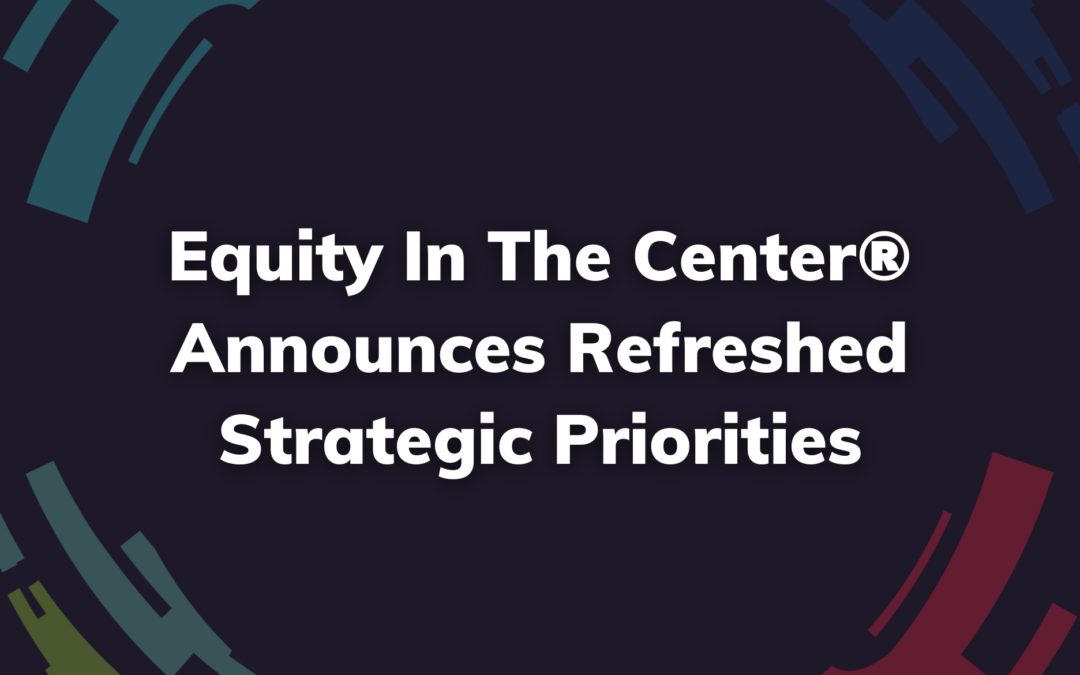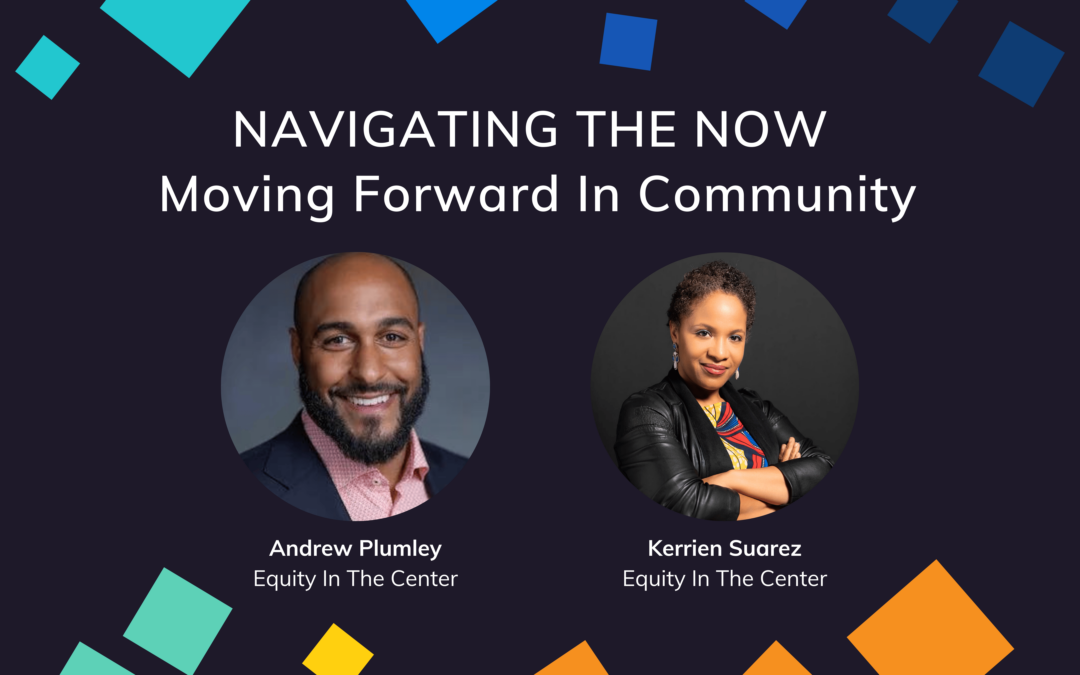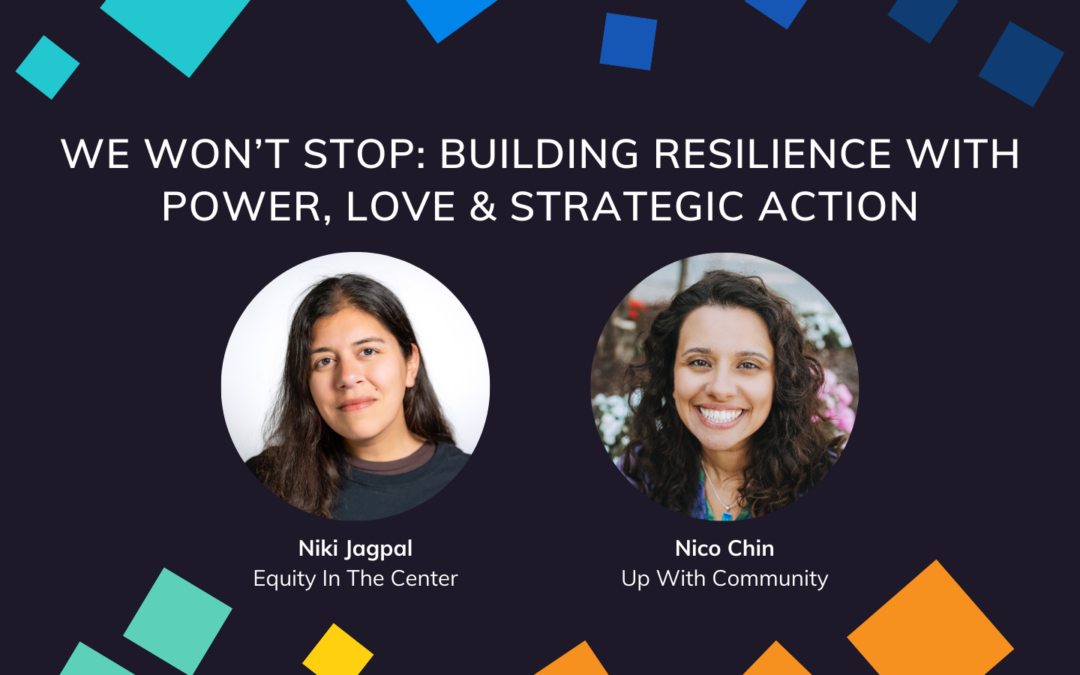In Partnership and Solidarity
Broader reach and sector-level focus will guide the next chapter as Equity in the Center becomes an independent organization
Today marks a new chapter in Equity in the Center’s story — one we are writing in partnership with stakeholders and in pursuit of our shared vision for race equity in society. Going forward, Equity in the Center (EiC) will operate as an independent 501(c)3 nonprofit organization. We are developing a strategic partnership with Grantmakers for Effective Organizations (GEO), the details of which will be shared in the coming weeks. Though the operating model is changing, our commitment to dismantling racism and building a Race Equity Culture within institutions— conceived in 2015, guided by our Advisory Committee, and practiced in our work supporting leaders and organizations — remains firm. We are deepening our capacity to transform the social sector in collaboration with colleagues and co-conspirators. We are excited to move towards a sustainable, scalable structure that operationalizes our theory of change.
Equity in the Center emerged in 2015 as a collaborative of Annie E. Casey Foundation grantees who convened to grapple with this essential question: Why are there so few leaders of color in the social sector? The answer — and call to action — was to widen the focus beyond diversity at the individual level and address racism at every level on which it operates within nonprofit, philanthropic, and other social sector institutions.
A collaborative spirit has informed and inspired EiC’s approach throughout our existence. We launched from a shared planning effort among leaders from Annie E. Casey Foundation, ProInspire, Public Allies and AmeriCorps Alums. We hosted collaborative Design and Dialogue sessions, attended by over 120 nonprofit and philanthropic leaders and race equity practitioners from across the country who lent perspective and expertise to development of the Race Equity Cycle. Most recently, and with the support of the ProInspire board, EiC’s advisors and stakeholders voted that it should separate from ProInspire and chart an independent course.
We value the deep and trusting relationships we have built among advisors and stakeholders, the guidance and expertise they have shared with EiC, and the contributions each has made to our ability to impact the field. These relationships are critical to our continued impact, as much of the moral and technical support required to persist as leaders in race equity is found within our ecosystem of expert collaborators and co-conspirators. Our goal is to deepen and broaden these relationships in support of a growing network of race equity practitioners committed to the values of deep equity and liberation. We believe deep equity to be the foundation of a Race Equity Culture in organizations and broader society. As our model evolves, we will continue to nurture not only these relationships, but the joy, energy, and purpose they have manifested in EiC’s work.
As we move into this new chapter, we have great appreciation not only for our Advisory Committee, but for individuals whose support has been essential to our work so far. ProInspire’s Founder and CEO, Monisha Kapila, had a vision for Equity in the Center’s successful launch, and ensured funding and operational conditions were in place for the project and its leadership to flourish. Ashley Stewart, formerly of Annie E. Casey Foundation, is the visionary who provided start-up funding for the project and influenced peers to invest in it. Ericka Hines, Managing Director of EiC and Principal of Every Level Leadership, was lead researcher for the Awake to Woke to Work: Building a Race Equity Culture publication, and her brilliance is reflected in the Race Equity Cycle framework. To CHANGE Philanthropy National Director/Coalition Catalyst Carly Hare and Building Movement Project Co-Director Sean Thomas- Breitfeld, who were the first colleagues to accept a formal organizing role with EiC, we offer deep gratitude for their early support, constant encouragement and sustaining friendship. To Marcus Walton, President and CEO of Grantmakers for Effective Organizations, who invested in EiC as a strategic co-conspirator and appreciated the potential impact of the Race Equity Cycle research early on, we remain grateful for your inspiring vision and transformational partnership. And, to Andrew Plumley, former Associate Director of EiC and newly minted board member, we remain indebted for the excellence and integrity he brought to co-leading a body of work that evolved to reflect the passion and purpose he poured into it.
In its next iteration as an independent 501(c)3 organization, Equity in the Center will operate under the leadership of Executive Director Kerrien Suarez and a seven-member (and growing) Board of Directors representing nonprofits, philanthropy, and independent race equity practitioners: Amanda Andere, CEO, Funders Together to End Homelessness; Jara Dean-Coffey, Director and Founder, Equitable Evaluation Initiative and Founder, Luminare Group; Holly Delany Cole, Director, Flexible Leadership Awards, The Haas Leadership Initiatives, Evelyn & Walter Haas Jr. Fund; Carly Hare, National Director/Coalition Catalyst, CHANGE Philanthropy; Maggie Potapchuk, President, MP Associates; Andrew Plumley, Director of Inclusion, American Alliance of Museums; Sean Thomas-Breitfeld, Co-Director, Building Movement Project. We are deeply grateful to each of these colleagues and co-conspirators for their early and unflagging support of EiC’s vision and values, personal and professional investment in its potential, and commitment to continued growth and impact.
While our business model and identity is evolving, our vision of race equity in society and our commitment to building a Race Equity Culture in the social sector remain unchanged.



